USA’s failure to win the FIBA Basketball World Cup in September may have come as a shock to many but to some, it demonstrated how the gap is slowly closing between the sport’s most successful and dominant nation and the rest of the world.
There was no doubt that the growing number of international players in the NBA was a contributing factor.
On the opening night of the 2019-20 season, 108 international players from 38 countries and territories featured on the rosters of the 30 teams, with 60 coming from Europe, one of the league’s biggest and most important markets.
To illustrate the importance of the European market to the NBA, it is the only region outside of North America which stages an annual regular season fixture.
This season, a record 48 regular season games are also being aired in prime-time in Europe as part of the ‘NBA Saturdays’ and ‘NBA Sundays’ campaign to further reach and engage with that audience.
The league has become truly global, in large part due to its popularity in Europe and the fan base it has developed on the continent, which the NBA has strategically capitalised on.
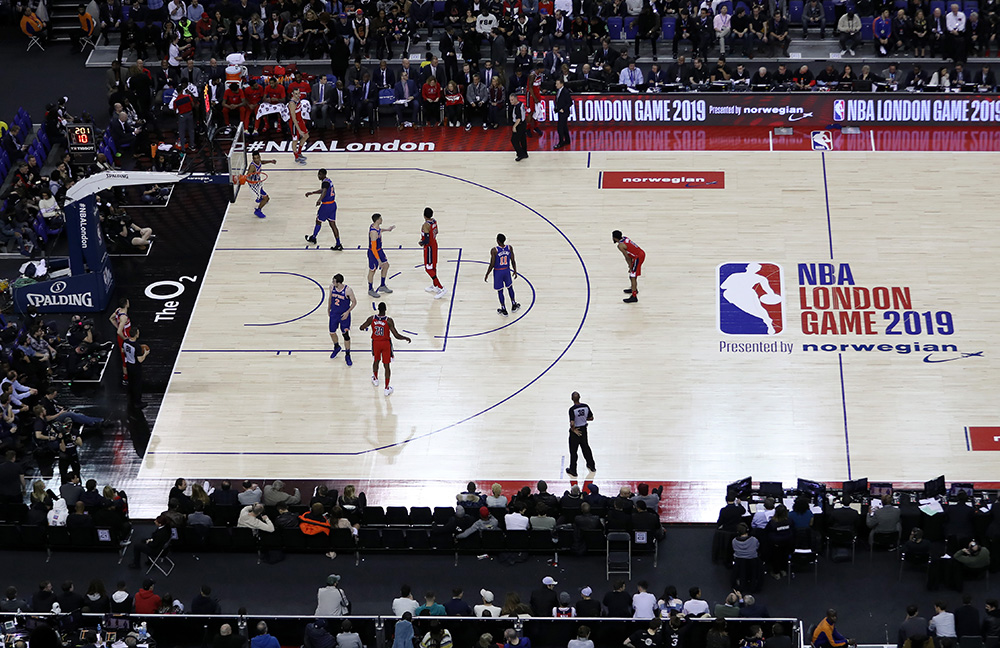
Following nine consecutive sell-out games in London between 2011 and 2019, the NBA switched its European regular season game to Paris this year, opening up new opportunities for the league to expand its footprint in the market.
So why make the move now?
“It was less about moving away from London than it was coming to Paris,” Ralph Rivera, managing director of NBA Europe and Middle East, tells Sportcal Insight. “London has been a great host city for NBA games for almost a decade but as we often say, this game is very much our European All-Star so we just felt it was time to bring it elsewhere in Europe.
“Arena availability and infrastructure also go a long way in our decision-making process. With the wonderfully refurbished AccorHotels Arena, and the fact that Paris is of course a destination in its own right, having a game in Paris made perfect sense.”
Unlike the UK, France is a country with a strong basketball reputation and a relatively successful national team: the country knocked out USA in the quarter-finals of last year’s World Cup in China and finished with the bronze medal.
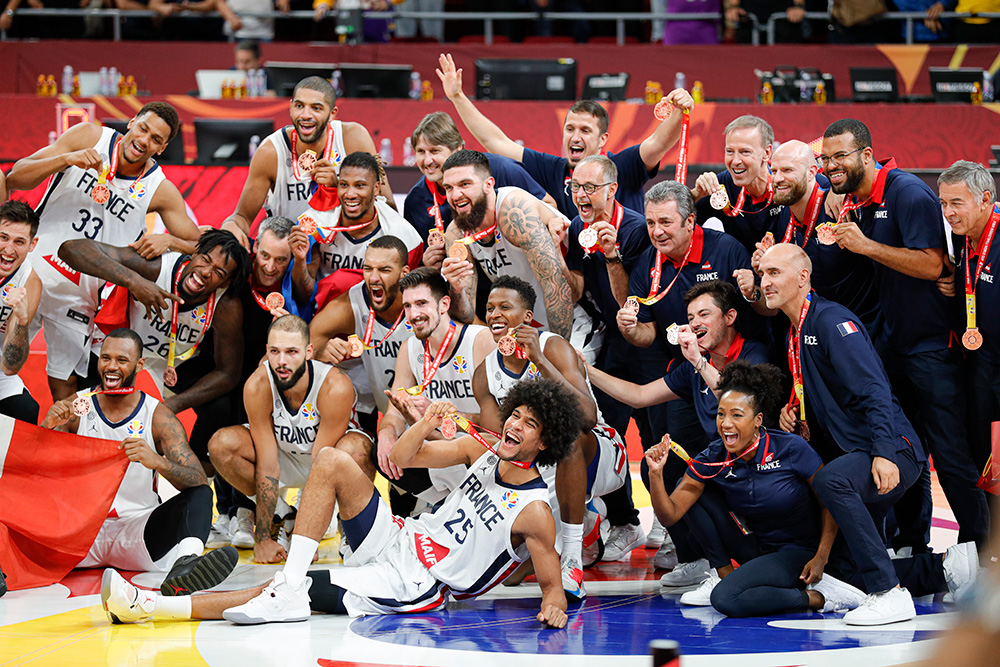
Of those 108 aforementioned international players on opening-night rosters, France was among the most-represented countries with eight players, the most from any country in Europe.
“France is one of our most important markets in Europe because of its rich basketball tradition, passionate fans and engaged partners who are helping us grow the game,” Rivera says.
“The NBA has a long history in France, including the 10 pre-season games and the more than 25 French players who have made it to the NBA all-time. France has been the most represented country in Europe for close to 15 years, which helps drive interest among fans.”
The NBA’s first regular season game in Paris in late January was a huge success, as a sell-out crowd of 15,758descended on the AccorHotels Arena to watch the Milwaukee Bucks’ 116-103 win over the Charlotte Hornets.
Fittingly, the league’s reigning Most Valuable Player Giannis Antetokounmpo (pictured below) was the standout performer and outlined why he is presently one of the biggest superstars in the sport.
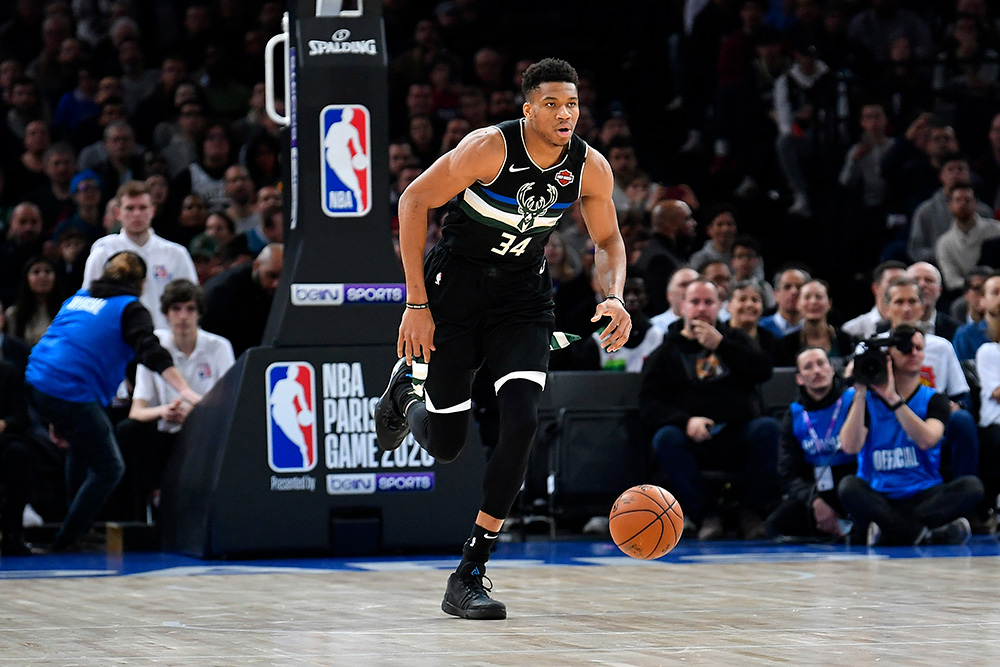
The Greek international is the most high-profile European player in the NBA and the league is aware that it can take advantage of his star power to further bolster its presence in the region.
The game marked the first in Europe which featured the winner of the MVP trophy from the previous season.
Taking arguably the league’s best player and its best team at present (in terms of record) to Paris certainly helped the NBA make a strong first regular season outing in France.
More than 150,000 fans registered their interest, a record for an NBA game in Europe, and according to the league, the game reached fans in more than 200 countries and territories on television, digital and social media.
The contest was the 92nd time Europe has hosted a live NBA game, more than any other region outside the US.
As presenting partner of the game, and with a strong presence in the French broadcasting market, Rivera also credited pay-TV operator BeIN Sports with supporting “the league’s commitment to growing the game in France.”
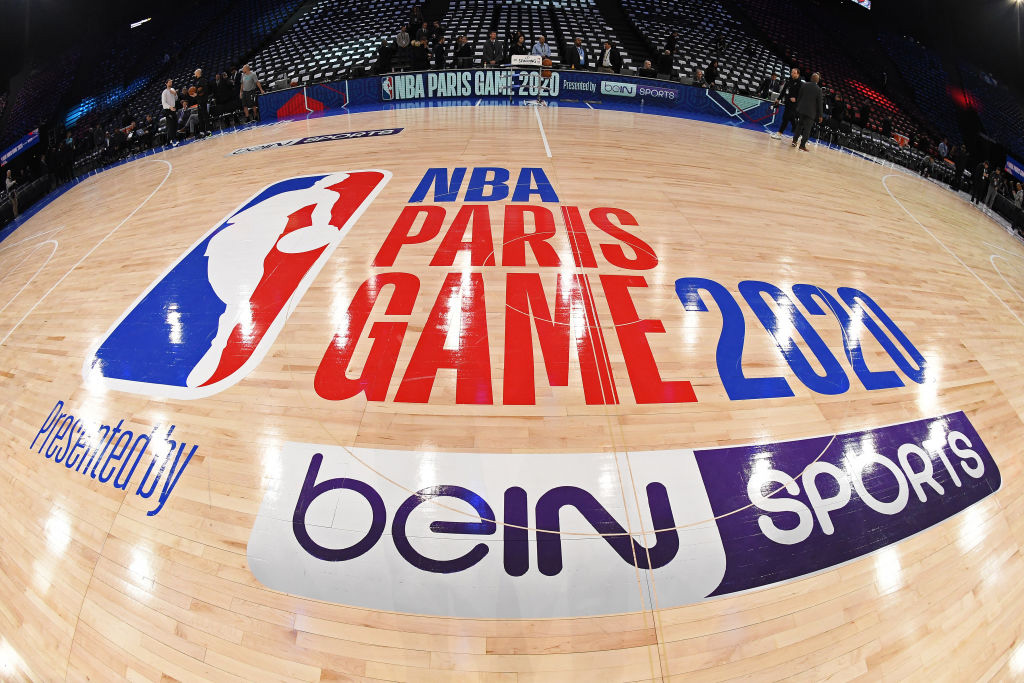
The international broadcaster airs seven games each week in France during the regular season, as well as marquee NBA events.
BeIN has exclusive NBA broadcasting rights in France, and across the 24 countries of the Middle East and North Africa, and its production of the game comprised 28 cameras on site, including 11 for world feeds and seven for BeIN Sports France.
“France currently ranks first in Europe and fourth globally for having the most players in the NBA – which gives an indication of how important basketball is to France,” Florent Houzot, BeIN Sports editorial director, tells Sportcal Insight.
“It was no surprise that 150,000 French fans expressed their interest in attending the game. We therefore felt the pressure to deliver a perfect broadcasting event for the whole country – and indeed the world with 200 countries using our broadcasting feed – and we are delighted to have delivered on our promises and helped to create a special event for the NBA.”
The switch to Paris certainly helped the league from a commercial perspective as it secured a record 14 partners for the contest, the most-ever for an NBA regular season game in Europe.
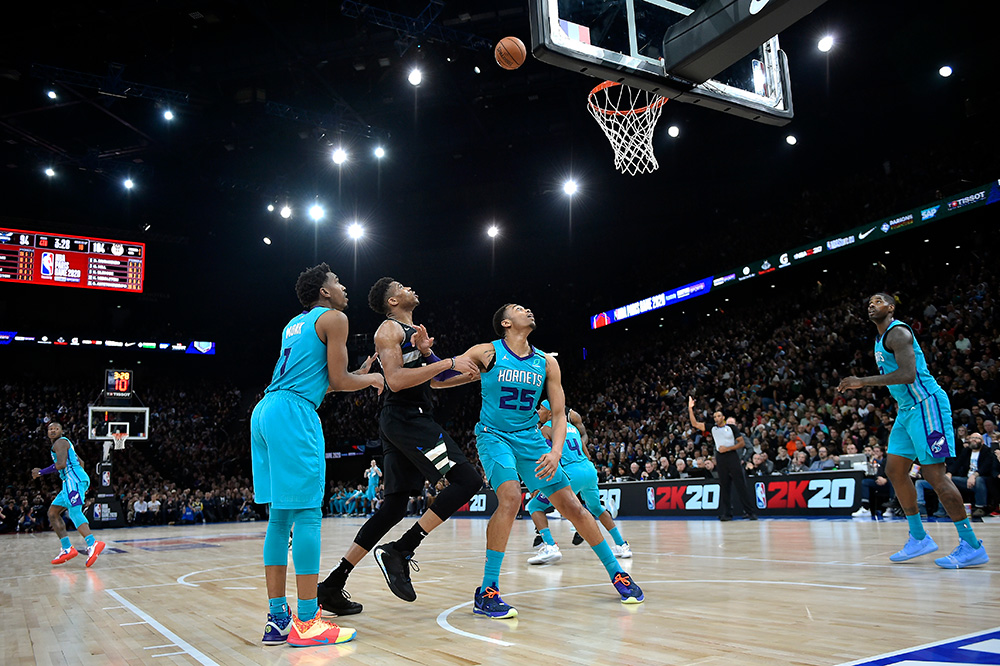
As well as BeIN Sports, other sponsors included major brands such as Beats By Dre, Fanatics, Foot Locker, Gatorade, Nike, Pringles, SAP, Tissot and 2K, along with domestic partners Accor, La Banque Postale, ParionsSport and Yop.
Prior to the game, the NBA also announced a partnership with luxury fashion brand Louis Vuitton during its visit to the French capital, with Rivera saying it was part of the league’s plan to “continue to partner with world-renowned companies to further connect with our fans and grow the game in new ways.”
France has clearly developed into a key market for the NBA, as evidenced by the country ranking number one in Europe for merchandise sales and second for League Pass subscriptions, the NBA’s video-on-demand streaming service.
For NBA commissioner Adam Silver, France is “one of the best basketball markets in the world” and before the game had even tipped-off, he revealed that the league’s regular season fixture in Europe will again be played in Paris next year and is “oversubscribed already in terms of team interest in coming.”
Rivera adds that the commitment to returning to Paris in 2021 for a second regular season game “demonstrates that France is a priority market.”
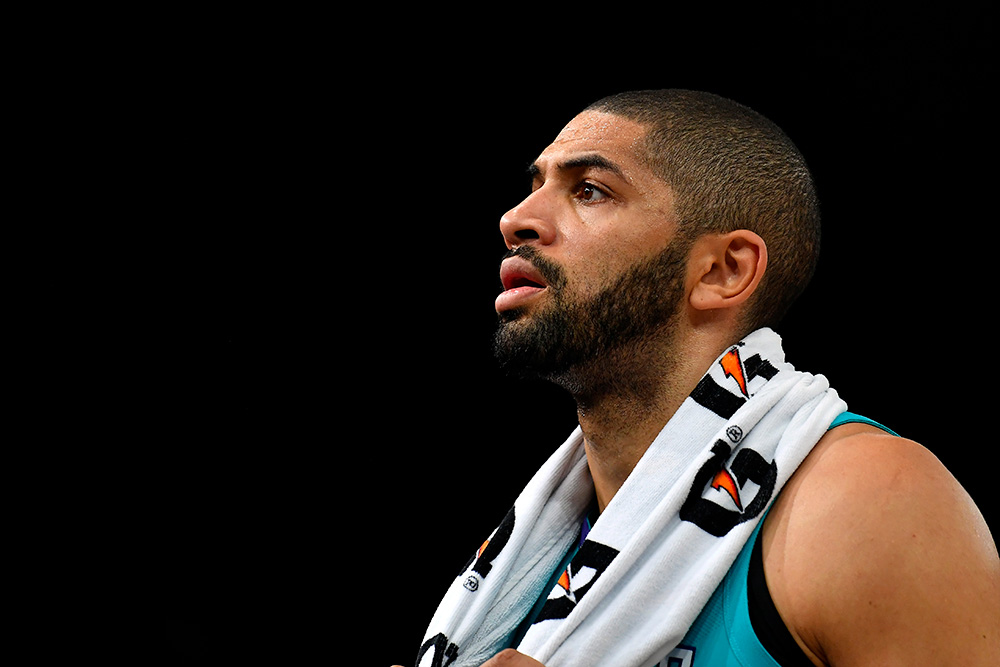
After being chosen to host the game again in 2021, could Paris be set for a long-term run like London?
“We are returning to Paris for a second game in January 2021, after which we have no plans to announce at this stage,” Rivera says. “With arena infrastructure constantly evolving this will provide us with the opportunity to rotate the games a little more than in prior years.”
The outcome of the game itself may have been predictable and there is clearly a gulf in class between the Bucks and Hornets this season but there was a strategic reason for taking the latter to Paris.
Aside from the obvious French connection with the Hornets, with native Nicolas Batum (pictured above) on their roster, NBA legend Michael Jordan owns the team and as well as being a global basketball icon, his Jordan brand is hugely popular in France which represented a clear marketing opportunity.
The Jordan brand also has a partnership with French soccer giants Paris Saint-Germain, whose players were in attendance at the game (pictured below), which has helped it significantly strengthen its presence in the city.
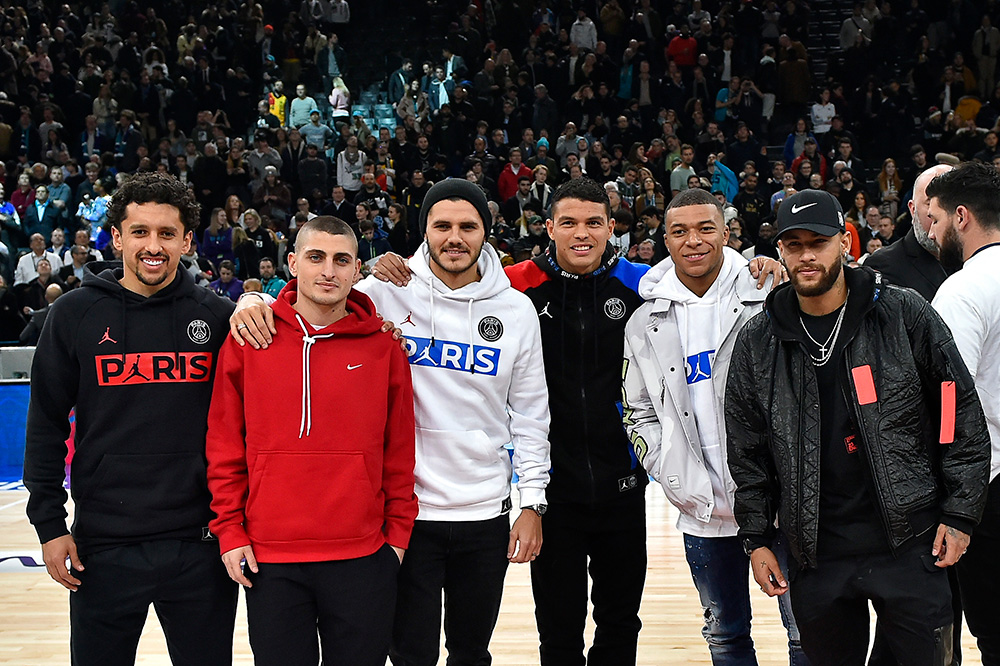
Jordan himself has come full circle as he played a major role in the globalisation of the NBA during his appearance at the 1992 Olympic Games in Barcelona with the USA ‘Dream Team’.
He followed that up by playing in Paris 23 years ago in a pre-season tournament with the Chicago Bulls.
“It has grown tremendously large since then,” Jordan reflected in a pre-game press conference in Paris. “The Dream Team started it, and it just led right into us [the Hornets] playing here. Now you have got different teams playing. We have got China. We have got Africa now. The game is expanding all over the globe. I am glad that I was a part of it, but I think it will continually get bigger because of the passion for the game of basketball.”
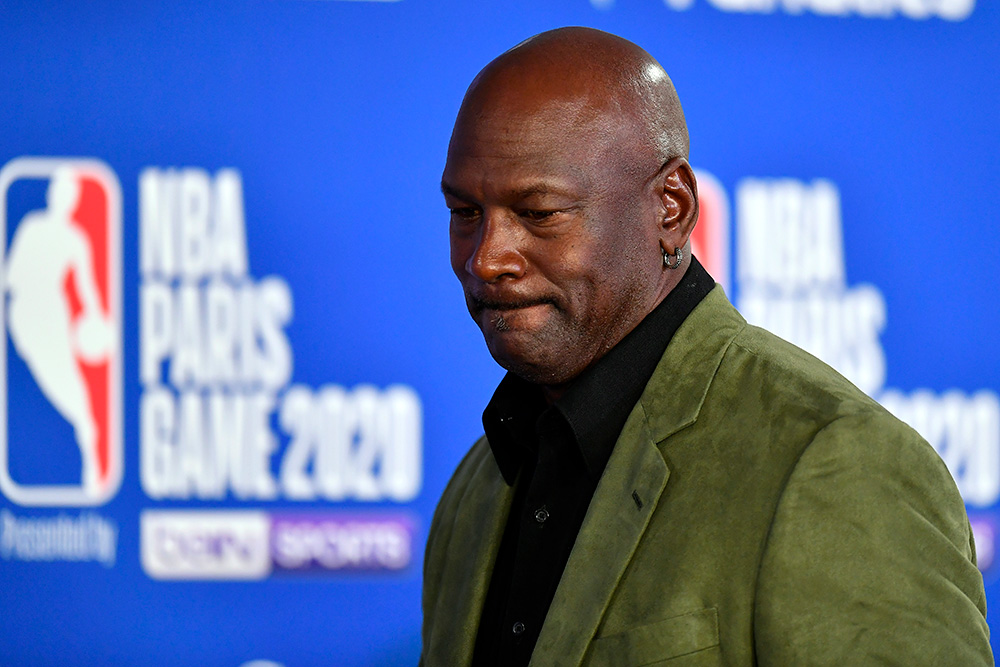
“The game is expanding all over the globe.”
Charlotte Hornets owner Michael Jordan
Through its work both on and off the court, the NBA has developed a strong footing in Europe and fans will be pleased to know that Silver has now opened the door for more than a single game each year if alterations can be made to the schedule.
“We are going to continue to invest in basketball in Europe, work with the local federations and clubs, and continue to bring teams over,” the commissioner told media on the sidelines of the Paris game.
“The only real limitation is the way the current schedule is structured. One of the projects the league continues to focus on is what should a regular season look like in five years and 10 years from now? Maybe ultimately we will be building in more windows to allow for more travel during the regular season.”
The European sports culture is having an obvious influence on the NBA in more ways than one, with Silver admitting his latest trip to the region was also a “fact-finding mission” as he explores the possibility of implementing the European soccer model of in-season tournaments, like the continent’s hugely popular and lucrative Uefa Champions League.
In late 2019, the league sent proposals to its 30 teams for a revamped 78-game regular season, a re-seeding of the playoffs and an in-season tournament and is in ongoing discussions with the National Basketball Players' Association and its broadcast partners about amending the league’s calendar from 2021-22, which will be the NBA’s 75th anniversary season.
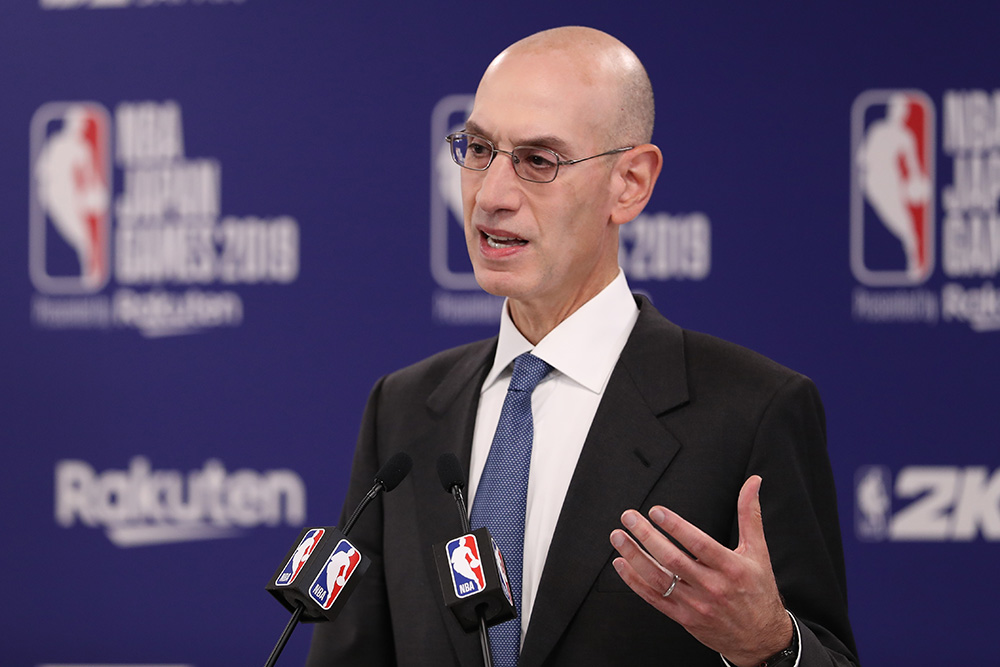
“France is one of the best basketball markets in the world.”
NBA commissioner Adam Silver
“I’m on a fact-finding mission of sorts even being here in Paris now because it is a concept that we have, in essence, adopted from European soccer,” Silver said. “We think this notion that you can play for more than one trophy or more than one cup ultimately makes a lot of sense for our league as well.”
Of course, this will not be the first time the NBA has taken a leaf out of the European soccer book, as it has allowed teams to have jersey sponsors in recent seasons, which shows how the region is also impacting the league commercially.
In return, European interest in the NBA has never been greater and it has helped to have significant and meaningful representation in the top basketball league in the world.
In this year’s NBA All-Star voting, Antetokounmpo and the Dallas Mavericks’ Slovenian star Luka Doncic (pictured below) came first and third, respectively.
For Rivera, that is a major boost for the league’s efforts to grow the game across many territories in Europe and increase its audience, saying: “Europe has provided a constant pipeline of players over the years, adding a whole new dimension to our league. The NBA All-Star game in Chicago this month featured a record five European players which helps to galvanise fandom in the region.”
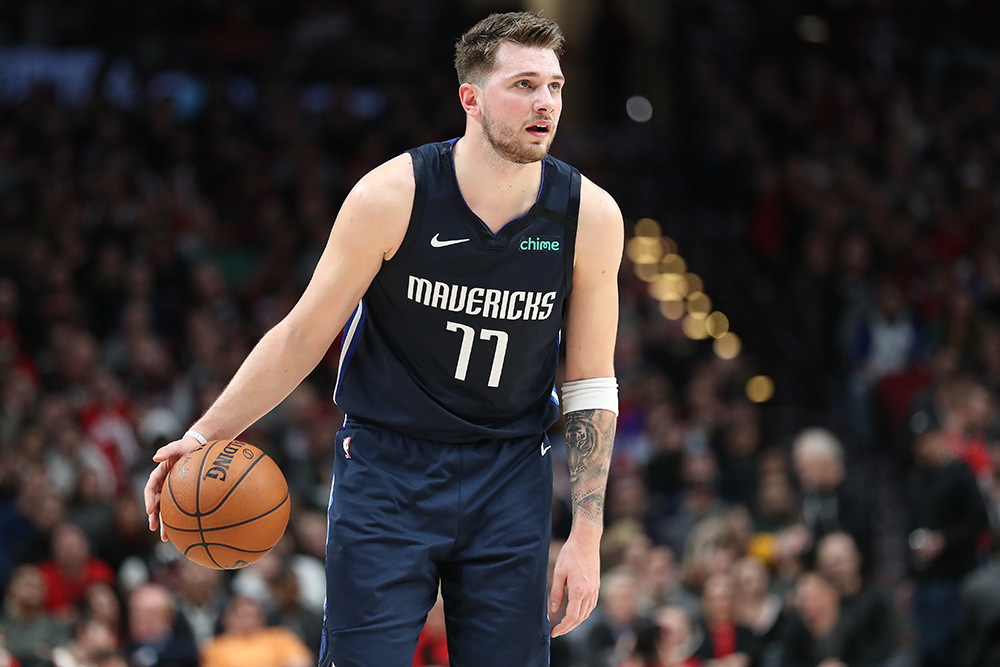
“Europe has provided a constant pipeline of players over the years, adding a whole new dimension to our league.”
Ralph Rivera, managing director NBA Europe and Middle East
Now that the NBA has developed such a strong presence and following in Europe, its challenge is to continuously find new ways to expand content and increase levels of engagement with core fans and the league has shown a willingness to overcome the obvious issue of the time difference.
It is all part of a “three-pronged” strategy for the league to grow the NBA and basketball in Europe by bringing the ‘NBA experience’ to European fans through live games and interactive fan events, making the game more accessible and delivering localised content, and creating more opportunities for youngsters through the Junior NBA programme.
“Understanding our fans and engaging with the broader NBA community through our social and digital channels is also key,” Rivera adds.
The league boasts close to 4.5 million fans across its localised European Facebook and Twitter accounts and global account and has also enjoyed an increase in subscribers for League Pass, with a 24 per cent growth in total game views since last season.
Making the NBA a global phenomenon was the ultimate goal of the late former commissioner David Stern and it is a legacy the league is committed to driving forward and taking to new heights.